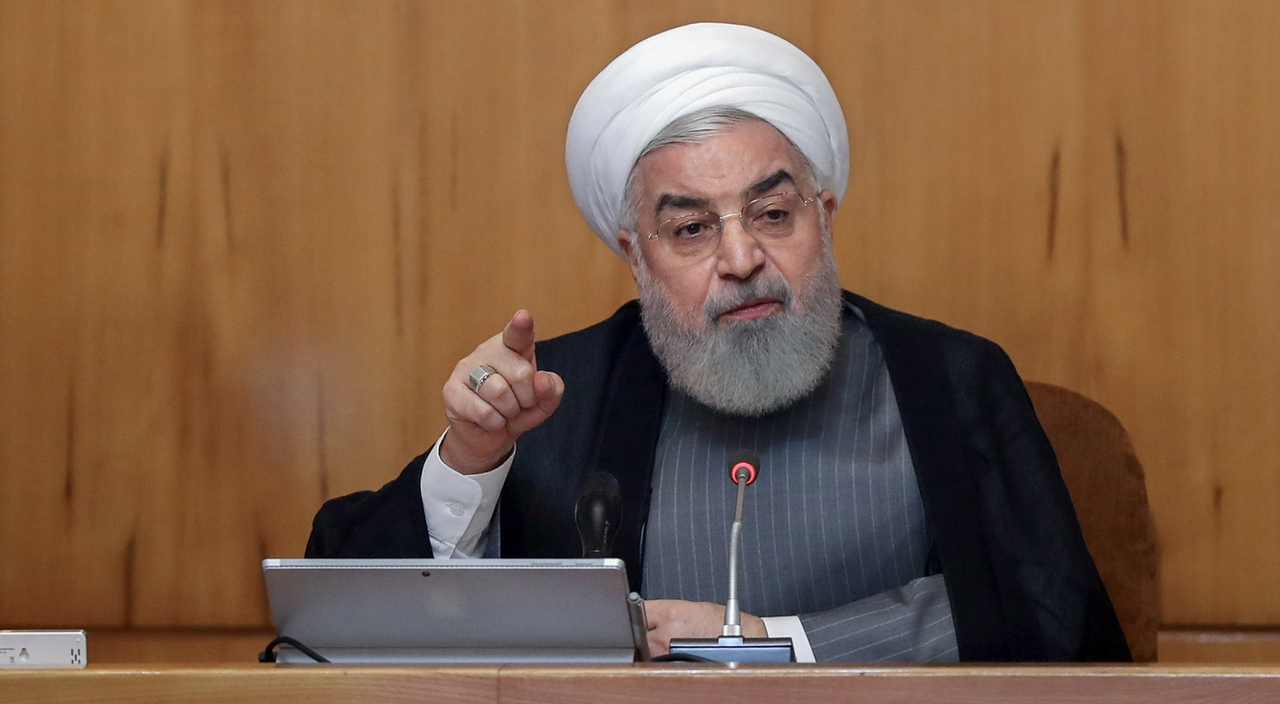Washington is about to squander whatever goodwill it gleaned from the series of mysterious tanker attacks that it blamed on Iran by leveraging its veto power at the UN Security Council to impose special ‘snapback’ sanctions on Tehran.
In the latest sign that the Trump Administration is planning to redouble its pressure campaign against the Islamic Republic in response to Tehran’s uranium enrichment, Bloomberg reports that senior US officials are debating whether to impose the ‘snapback’ sanctions – which would further elevate tensions between Washington and Tehran – in response to Iran’s breach of thresholds for the size of its uranium stockpile and the level of enrichment.
Though the US formally withdrew from the treaty last year, officials believe Washington could still invoke the mechanism, which would ultimately trigger a return to UN Security Council sanctions beyond those the US is already imposing unilaterally.
A return to the sanctions straightjacket that first drove Tehran to the negotiating table would destroy whatever is left of the European signatories’ effort to salvage the deal. It would also seriously piss off the other signatories, particularly since the US has already quit the deal, and therefore shouldn’t have a say.
But ultimately, even Obama era officials agree that there’s “an argument to be maid” for triggering the snapback sanctions.
“Do I think there’s an argument to be made for snapping back? Sure,” said Richard Nephew, who was the lead sanctions expert for the Obama administration team that negotiated the 2015 accord. “Do I think the rest of the council agrees? No. It’s not clear people would stay in their chairs during discussions if we invoked this.”
Nephew, now a senior research scholar at Columbia University, said the snapback was designed to give the U.S. unilateral privileges to restore sanctions through the Security Council. At the time, the provision was a major part of Secretary of State John Kerry’s pitch for Congress to acquiesce to the deal. It’s also something that an “America First” president like Trump would like.
Here’s how the US would pull it off: the whole process would take two months, and it may require the help of France or the UK, both of whom are trying to save the deal, but still might acquiesce as they worry that Tehran has failed to restrain itself.
Under the snapback clause, any of the signatories to the Iran accord can cite Iran for violating the accord in a complaint to a dispute resolution committee. The matter eventually could be brought before the Security Council, which could vote on a resolution to keep the previous sanctions from going back into force. But the U.S. could get its way by exercising its veto on the council.
It’s no easy fix: The process could take two months or longer. And in today’s circumstances, other participants in the deal would be likely to argue that the U.S. is no longer allowed to invoke the mechanism.
To get around a dispute over whether the U.S. has standing to initiate the snapback mechanism, American officials are leaning on France and the U.K. to consider exercising it. The Europeans are signaling they’re not at that point yet, but they are using the American threats to put pressure on Iran to restrain itself, according to Western diplomats at the UN.
Many of the signatories are still angry with the US for leaving and trashing the deal, and have criticized for aggravating tensions in the region.
A meeting in Vienna on Wednesday foreshadowed just how explosive any efforts for a snapback would be. The U.S. sought a special meeting of nuclear inspectors to increase pressure against Iran. Instead, the Americans drew pushback from Russia, China and Europe, all of whom blame the Trump administration for the crisis.
France, Germany and the U.K. issued a joint statement on the eve of the meeting saying that while they were concerned by Iran’s violations, it’s the job of the remaining participants in the deal, known as the Joint Comprehensive Plan of Action, to address disputes.
“The EU deeply regrets the U.S. withdrawal and calls on all countries to refrain from taking any actions that impede the implementation of the JCPOA commitments,” it said.
To be sure, US sanctions have done considerable damage to the Iranian economy, and it’s unclear whether the UN sanctions would add a significant amount of pressure. But the fact that this is being seriously considered shows that the Iran hawks are working to regain control of the agenda, despite President Trump’s insistence that he doesn’t “want a war” with Iran.
via ZeroHedge News https://ift.tt/2LK18Ya Tyler Durden
